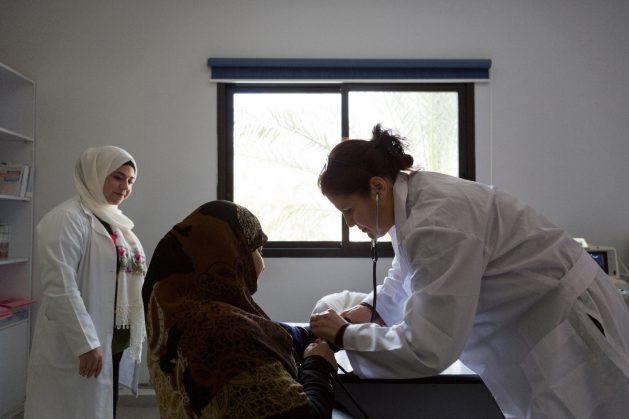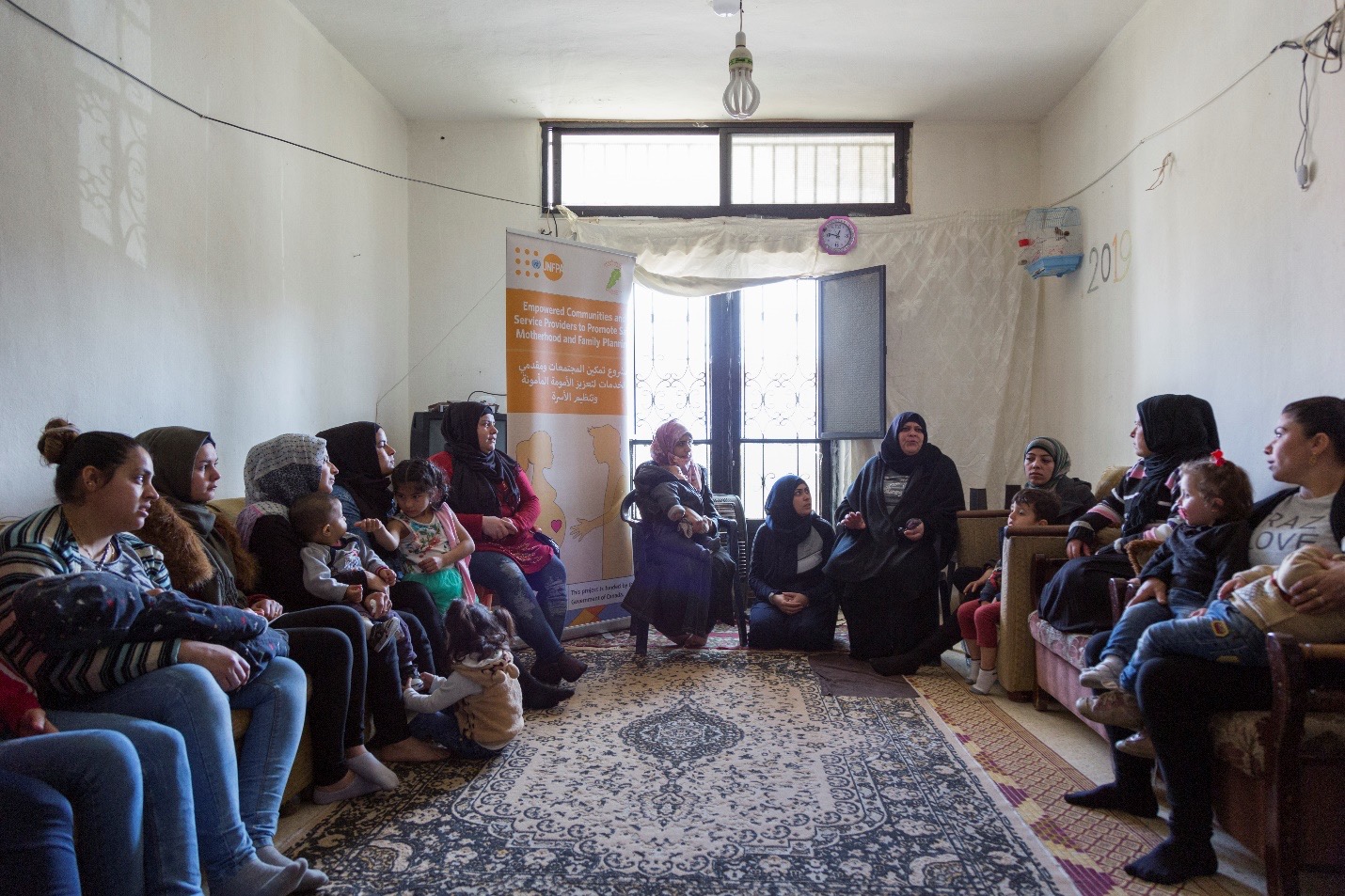Aid, Civil Society, Development & Aid, Editors’ Choice, Featured, Gender, Global Governance, Headlines, Human Rights, Humanitarian Emergencies, IPS UN: Inside the Glasshouse, TerraViva United Nations
Marcy Hersh, is the Senior Manager of Humanitarian Advocacy at Women Deliver & Cecilia Chami is the Programs Director of Lebanon Family Planning Association for Development and Family Empowerment (LFPADE).

– To mark World Humanitarian Day, we celebrate the overlooked women leaders who are first responders, unwavering advocates, and powerful change-makers in humanitarian emergencies.
Yet to truly power progress, we can’t stop at celebrating their efforts – we must also push for the support and investment women humanitarians need to continue their vital work.
Women Deliver spoke with Cecilia Chami, Programs Director for the Lebanon Family Planning Association for Development and Family Empowerment (LFPADE) on what women-focused civil society organisations (CSOs) need to maximise their impact.
World Humanitarian Day also coincides with a special milestone for LFPADE: today, August 19, marks their 50th anniversary as the first and oldest family planning organisation in Lebanon.
Drawing from LFPADE’s five decades of experience, Chami highlights the power of women-focused CSOs, and what the world can do to help continue their vital work.
Excerpts from the interview:
HERSH: Women make up a large part of LFPADE’s team, including in leadership positions and as direct service providers. How does having strong women on your team help advance LFPADE’s work and mission?
CHAMI: LFPADE works to empower women in all aspects of their lives to achieve gender equality – so having strong women on our team is essential. Women are the best experts on our lives, so we understand what women in our communities need, can relate to the challenges they face, and appreciate the quality of services they deserve.
For example, we know from experience that access to family planning and sexual and reproductive health (SRH) services improves lives and futures of girls, women, and their whole communities. So, while these services might be sidelined in many traditional humanitarian responses, we prioritise a woman’s ability to control her fertility at the core of all our work.
As women from Lebanon, we also know the contexts and entry points to deliver services most effectively. We work with anyone who influences the lives of girls and women – including boys, men, community leaders, and mothers-in-law – to help girls and women make more autonomous decisions about their lives and bodies. We are only able to form these partnerships because communities know us, trust us, and believe in us.
 HERSH: What can the world do to better support women and women-focused organisations in humanitarian action?
HERSH: What can the world do to better support women and women-focused organisations in humanitarian action?
CHAMI: International actors wield so much power in humanitarian action – and it’s time they share more of that power with women-focused CSOs.
First, international organisations must work hand-in-hand with women-focused CSOs as equal partners, designing programs together that really respond to the needs of girls and women in our communities.
Often, local and national organisations like LFPADE are only seen as implementing partners that can execute the projects envisioned by foreigners. We bring grassroots expertise and community voices to the table – so we must actually be engaged at the outset.
Resources are key to maximising our impact, too. We often rely on unreliable funding streams and short-term grants to sustain them, which makes it very hard for us to work. Long-term investment in women-focused CSOs is the fuel we need to achieve results that have a real impact.
HERSH: LFPADE has worked to provide SRH services to women throughout Lebanon for 50 years, including Palestinian and Syrian women. When you reflect on the organisation’s history, what have been some of the biggest successes and lessons learned?
CHAMI: The biggest success of LFPADE was pushing for the removal of regressive laws which forbade talking about family planning and contraceptives in Lebanon. By doing so, we made it possible for us – and other women-focused organisations across the country – to advocate for family planning and the sale of essential contraceptives. This also made it possible for the government ministries to begin to implement SRH programs nationwide.
Another success was our ability to mobilise quickly to ensure that refugee responses prioritise SRH services for all girls and women. We worked with the United Nations Relief and Work Agency for Palestinian Refugees (UNWRA) to provide their medical and paramedical staff with training on how to provide these services in their clinics.
Since 2013, we have also dedicated a large part of our efforts to meeting the needs of Syrian refugees who have fled from home – and to date have reached over 30,000 Syrian men, women, and children with SRH awareness campaigns and programs.
One big lesson learned throughout all these successes is that girls and women must be included in the design of all projects for them. When we take the time to speak with girls and women about their needs and challenges at the outset, we be sure to design programs to fit their realities.
HERSH: You work you do is often difficult and tiring – but you continue to be an inspiring change-maker in Lebanon. What motivates you to continue your important work as a Program Director for LFPADE, even during the most challenging times?
CHAMI: What motivates me to continue working is the impact our programs are achieving. When I meet and talk to girls and women, I see firsthand how our efforts improve their lives and the lives of their children.
One quote that will always stay with me comes from a woman who attended a course LFPADE runs on women’s leadership: “You gave us self-confidence and knowledge, and we know now that we too can make a difference.” When every woman in Lebanon realises their power to make a change, my job will be done.
